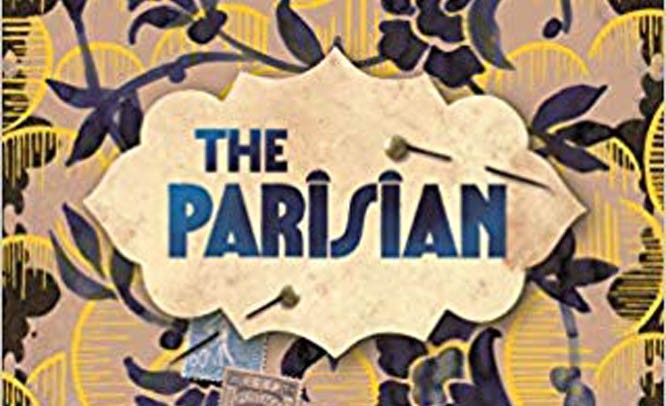
Isabella Hammad's debut novel is an astonishing work

Dear All,
I have just finished reading The Parisian, by Isabella Hammad, which was published earlier this year. This is Hammad’s debut novel and it re-imagines the life of her great grandfather, a man from Nablus named Midhat Kamal.
The book is the story of Midhat’s journey – and this is is not just a physical journey, but also an intellectual and emotional one. The book starts in 1914 with Midhat being sent by his father to attend university in France in order to avoid conscription. Midhat’s five years in France shape his thinking as well as the intellectual vistas of his mind, and when he returns to Palestine he becomes known in his native Nablus as ‘al barisi’ or ‘the Parisian’.
Midhat’s emotional upheaval and shifting fortunes are set against the backdrop of a world in conflict. With the First World War and the end of Ottoman domination in Arab lands, the region falls into British and French hands and these two powers then haggle over who will control what and they draw up arbitrary borders to carve out new Arab countries. In Midhat’s story we learn of the local unrest in Palestine and ‘greater Syria’ regarding the European plans for the region: plans that not only overlooked the input of various Arab representatives and delegations but also encouraged the continuing waves of Jewish immigration from Europe. The unease felt by the local population about the rulers, the immigrants and the taking over of Palestinian lands takes expression in the protest and armed resistance that many of Midhat’s contemporaries become involved in once they see that their voice and political demands are simply being ignored by the British.
This is a work of historical fiction so Hammad tells of (re-imagined) lives lived out against a backdrop of war and tumult. Her prose is unusually old-style, reminiscent as much of nineteenth century novels by Flaubert as of Lawrence Durrell’s twentieth century work The Alexandria Quartet. And this is prose that is lovely to read -- full of sensory detail and conveying great sensitivity to characters and their responses to various situations. Hammad also conveys the rhythm of both culture and language through her prose and the way Arabic words and phrases are part of the dialogue seems entirely natural.
For many this book’s political landscape will be unfamiliar and the numerous names of clans and communities somewhat confusing, but the novel includes both a cast of characters and a chronology of ‘ key events in the development of the Palestinian and Syrian national movements.’ The latter is particularly helpful and will be an eye opener for readers not familiar with the history of this troubled region.
This is a beautifully told story of one man’s journey during a period of upheaval and turmoil, but it is also an insightful study of the emotional and cultural gap between the East and the West. Each side seems to be trying to comprehend the other. This is done in an almost anthropological manner yet is coloured by preconceptions and bias. The way the Europeans in the story interact with the Arabs shows their underlying tendency to ‘orientalise’, to turn the Arab into ‘the Muslim’ and effectively ‘the other’, one who is dangerously different as well as difficult to understand and trust.
This is not a short book; nor is it a page turner, but it is a book that you will feel inspired to re-read almost as soon as you’ve finished it. This is because not only is it a great story told with compassion and insight, but also because it takes you into a distinctive landscape and a particular historical time.
Best wishes